Comments
ERIC PREVEN’S NOTEBOOK - City Hall will be glowing — for Korea, Ukraine, and Overdose Awareness — but the real heat is on Item 32, a new ignition interlock law for first-time DUI offenders. A rare step in the right direction. Meanwhile, drivers on the Pacific Coast Highway are crawling through 25 mph zones, stuck in first gear to get home.
And while the city preaches road safety, Item 45 reminds us what happens when it forgets to practice it: the Stephen Paper v. City of LA lawsuit, where an LAPD officer allegedly tore through Encino doing 80 in a 45, no lights, no sirens. A potential seven-figure payout looms. Slow down, cruisers.
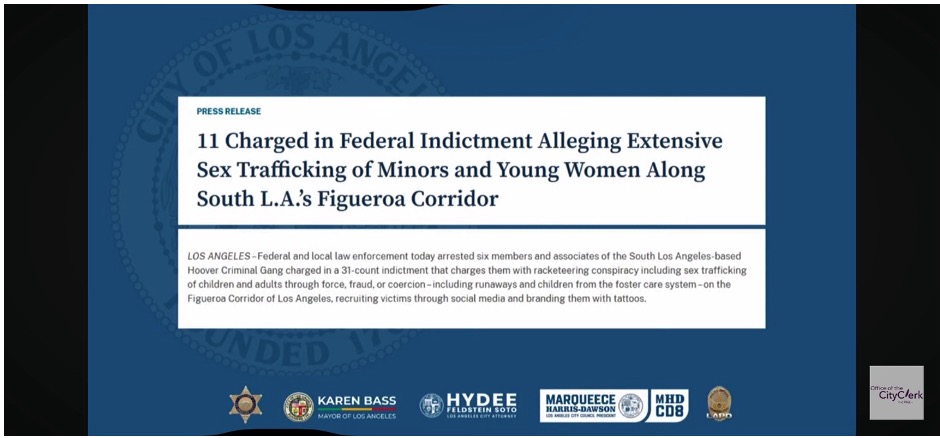
After decades of trafficking...
Eight major items shape Tuesday’s agenda — a civic grab bag of accountability, optics, and open-ended budget holes:
Item 3 proposes requiring LAPD to verify the identities of masked or unidentified agents detaining Angelenos. That’s ICE, and yes, police unions will hate it.
Item 6 seeks legal remedies against ICE over constitutional violations — expect a strongly worded letter and several lawyer lunches.
Item 42 brings CHIRLA, CARECEN, Public Counsel, and ACLU to testify on recent raids — powerful testimony, though unlikely to be backed by serious funding for legal aid.
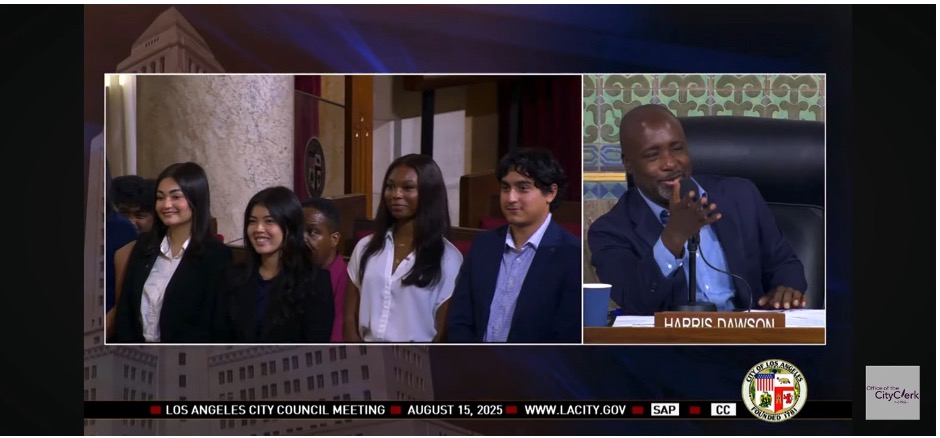
Denying call-in testimony and thanking the interns!
Item 38 expands LA’s 41.18 enforcement zones. Yaroslavsky’s pushing to restrict public space for unhoused residents — a familiar maneuver that’s more about perimeter optics than permanent housing.
Item 27 calls for the removal of the Marines and National Guard from LA. Symbolic, bold, and destined for the shredder unless someone finds enforcement teeth.
Item 16 awards retroactive raises to LAPD’s Juvenile Division — a $313K bump with no clear rationale beyond tradition.
Item 11 could expand the Office of Public Accountability’s role into trash and sewer rates — good luck keeping that funded when departments push back.
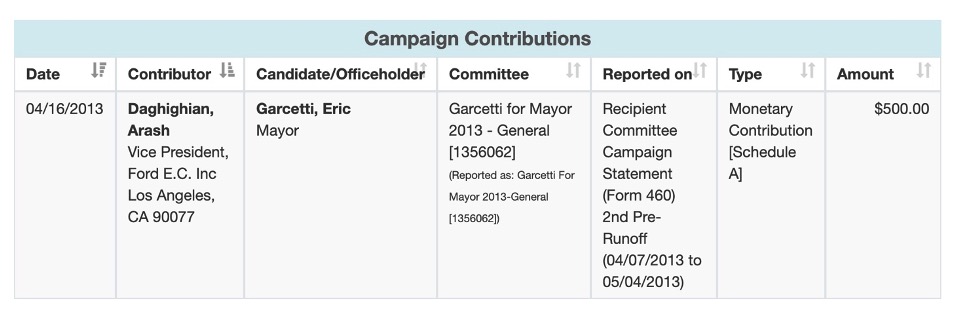
Ford E.C. got the Studio City Prop K job!
Item 44 has LA opposing SB 79, the state’s push for upzoning near transit, unless cities like ours get a “we already tried” exemption. Local control, or just more delay? You decide.
Budget and Finance waived oversight on several of these items — because why sweat the numbers when you’ve got spotlights and slogans?
PCH now crawls at 25 mph. Meanwhile, the city may spend millions defending a cop who couldn’t slow down. If you're tired of proclamations without accountability, tune in or show up. And bring a fuzz buster.
The Lindsey Horvath Memorial Naming Rights Grab
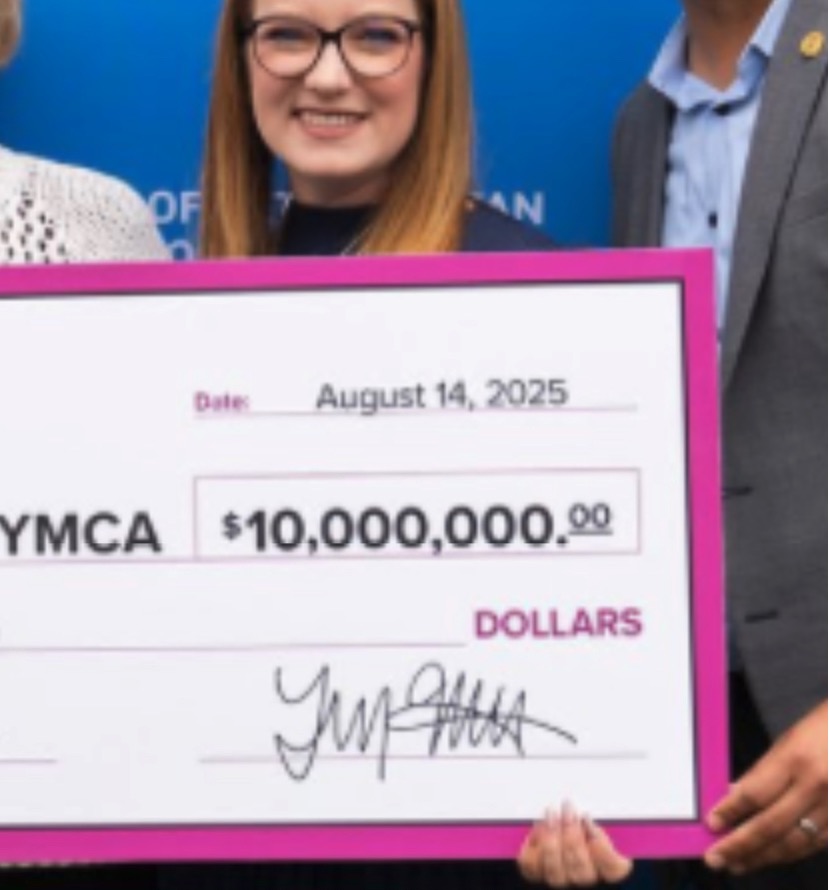
It started innocently enough: a Supervisor rebrands a YMCA in her own honor. No charges filed, just nods and nervous chuckles. But then Hugo Soto-Martínez saw it — the light. If naming a youth center after yourself was fair game, why not go bigger?
Thus, a sweeping Olympic rebrand was born.
The Herb Wesson 800-meter. The Zev Yaroslavsky Javelin Toss. The Imelda Padilla Synchronized Applause. Each event, lovingly named after a public official and their legacy not-for-profit.
Critics wondered if it was sustainable — like swimming uphill in a dry aqueduct. But LA28 wasn’t worried. With corporate partners like Comcast and Honda lining up to slap their logos on sports they don’t sponsor, the Games are now a fully franchised exercise in civic branding and moral bankruptcy.
“From the moment we submitted our bid, we committed to reimagining what’s possible,” said Casey Wasserman, without blinking. And what’s possible, it turns out, is letting the wealthiest village in America name everything from shot put to porta-potties. For equity.
Councilmembers formerly wary of Olympic overreach soon got in line — or rather, in lane. Rumors swirl that Eunisses Hernandez has secured the naming rights to the 2028 Regulatory Hurdles, while Big Event Tsar Paul Krekorian is eyeing the Budgetary Obstacle Course—one item.
And while progressives once asked, who profits? Now the answer is simple: who doesn’t?
Even Donald Trump is impressed. “They said it was gonna be privately funded. I love it. Tremendous naming rights. Big win for capitalism. Sad for France.”
Don’t look away. The Los Angeles Times 4x100 Complicity Relaystarts at dawn.
Nextdoor: Shaming
In this 2019 clip, Councilmember Paul Krekorian boasts about personally killing a Planning Department proposal to rezone a Studio City single-family enclave—what he calls the “Island Community”—into multifamily triplexes.
“If you care about the sanctity of neighborhoods,” he says, “it was a horrendous idea. I already told them: under no circumstances is that ever going to see the light of day.”
When a neighbor posted this moment on Nextdoor, moderators took it down. The neighbor appealed. Appeal denied. The reason? “Shaming” Krekorian.
Yet despite Krekorian’s grandstanding, by 2025 the push for triplexes and upzoning has only accelerated—making what he once called a “horrendous idea” seem almost quaint compared to the sweeping land use changes now steamrolling neighborhoods. NextDoor is awful. Here's the clip!
Subject: Request for Clarity on Discretionary Fund Use & Ledger Access
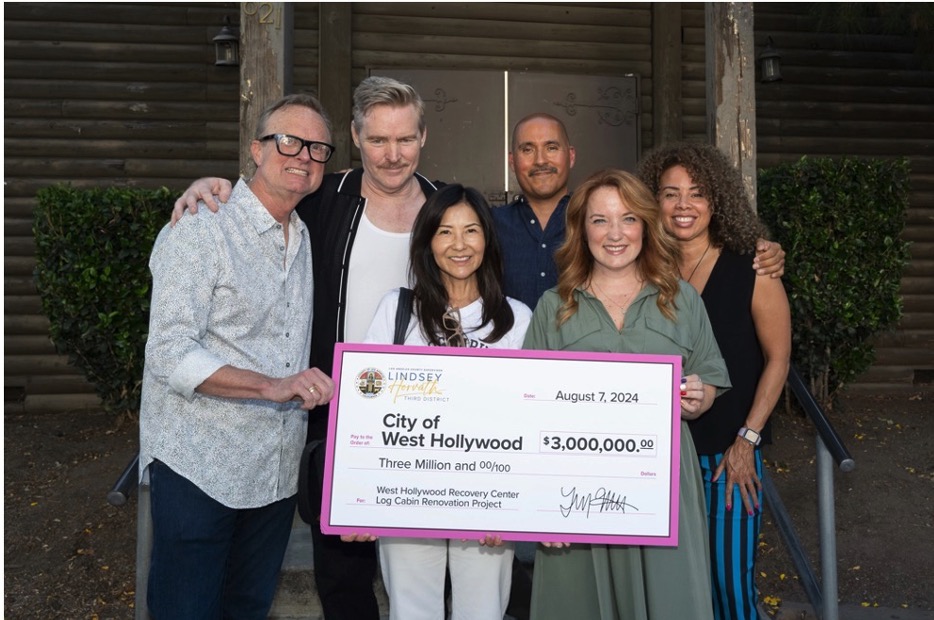
Dear Davenport & Supervisors,
A reader recently asked whether the $10 million pledged to the YMCA project in the Palisades came from Supervisor Horvath’s discretionary funds. From what we understand, each L.A. County Supervisor receives $3.4 million annually in discretionary funds—is that figure correct?
If so, that would amount to $13.6 million over a four-year term. In Horvath’s case, did any of Supervisor Kuehl’s unspent funds carry over, making a $10 million commitment more feasible?
To promote transparency, could each district please provide a full discretionary funding ledger, showing how past allocations have been made and how current funds are being deployed? Constituents deserve to see how their supervisors are spending these public dollars.
For instance, if Supervisor Horvath is spending $10 million, is that over multiple years? Is there a start date for the commitment? And could other sources—say, a $5 million private donor—offset part of her $10 million pledge?
I've copied all five district offices for convenience. Thank you in advance for your time and clarification.
Sincerely,
Eric Preven
EXT. DESERT – DAY
A still expanse of sun-bleached sand and stone. The only sound is the lazy tap of a woodpecker somewhere unseen.
A majestic old saguaro towers in the heat haze.
ZEV YAROSLAVSKY: steps forward, slow and deliberate. Plants his feet. Adjusts his grip. Breathes.
DON KNABE: Easy does it, Zev.
THWACK.
The ball dribbles off, pathetic and crooked.
ZEV: Fuck.
He stands there a beat. Then—loses it. The club spins through the air — WHIRRRR — boomeranging wildly.
It slices clean through the saguaro’s crown, sending the top chunk spinning like a giant green propeller before it crashes to the dirt.
ZEV: Yer up, Fujioka!
—
On Friday, Bill Fujioka addressed the Los Angeles City Council. He was not wearing his County CEO hat — that was years ago. This time, he was there on behalf of a community organization supporting immigrant families. A victim of a federal immigration crackdown had just testified. Fujioka followed.
He recalled being with Governor Gavin Newsom in Little Tokyo last week when ICE agents stormed in mid-press conference. “People know I have a temper,” he said. But that day, he held it together. “I was furious,” he admitted.
Someone whispered, "Is he crying?"
No. Just triggered — and triggering.
Because the last time I saw Fujioka show that much intensity was 2009, when he was fast-tracking a lease renewal for American Golf Corporation.
But the real diligence was on the side of Fortress. They secured a multi-decade, sub-market-rate master lease for millions in public land. They kept the contract from going out to bid. And they quietly ensured no small operators would get a shot.
It was a red fire truck turning into a red wagon. "It's like being promised a fire engine, and getting a toy instead," I told the New York Times in 2017, after my brother Joshua and I first raised alarms.
Who signed off on it? Zev Yaroslavsky, Mark Ridley-Thomas, Gloria Molina, and Mike Antonovich. But the implementer — the man who ensured the deal went through — was Fujioka.
And if his temper ever flared, it wasn’t over the loss of tens of millions in public revenue.
That revenue was supposed to fund parks. Public access. Community programs. Instead, it got funneled into Fortress’s financial architecture — and still does.
Their website still boasts the lease. Their operator, American Golf Corporation, still controls the courses. And if you try to pry into the books, the County normalizes.
The crown jewel of this betrayal was Victoria Golf Course in Carson. The plan there was even bigger: a $60 million tennis campus with the United States Tennis Association and the Kimmelman Foundation. There were groundbreaking ceremonies. Excited press releases. Ridley-Thomas front and center.
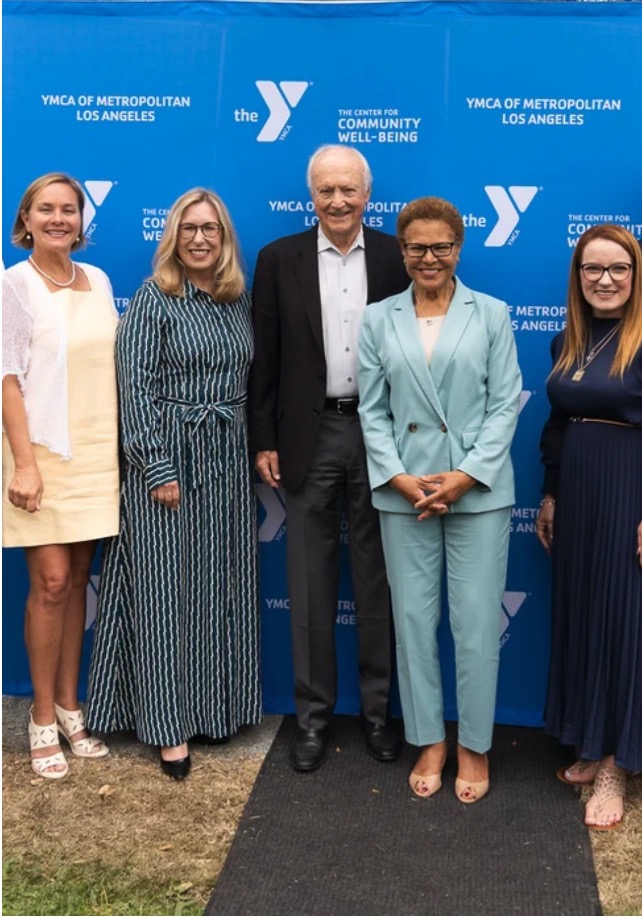
Among the well-heeled, there is plenty of $upport to go around.
Today? The site sits undeveloped. No courts. No housing. No community benefits. Just a ghost of a project tied to a legacy no one wants to touch.
The County says it’s complicated. There are lease issues. Delays. Logistics. But the truth is simpler: they gave the keys away, and now they can’t get back in the door.
Public assets are being siphoned. And the public has no idea.
Even now, Fortress’s lease is locked in through 2045. With no public vote. No clear exit clause. And no requirement that any of the golf course profits return to the people.
This isn’t just about golf. It’s about power, land, and transparency. It’s about a system that privileges developers and hedge funds over public interest.
What’s needed is a reckoning. A full audit. A public investigation. There’s precedent. New York clawed back courses from the Trump Organization. Chicago restructured. San Diego rebalanced contracts.
Los Angeles? We call it a win and move on.
But someone needs to yell fore. Because we just got hit — and didn’t even see it coming.
Bill Whitaker, you’re up.
(Eric Preven is a Studio City-based television writer-producer, award-winning journalist, and longtime community activist. He is known for his sharp commentary on transparency and accountability in local government. Eric successfully brought and won two landmark open government cases in California, reinforcing the public’s right to know. A regular contributor to CityWatch, he combines investigative insight with grassroots advocacy to shine a light on civic issues across Los Angeles.)











